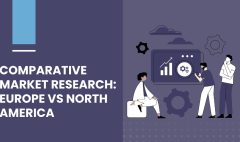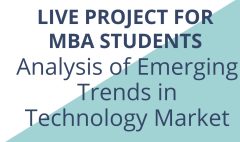R&D in the Digital Era
R&D in the Digital Era
The digital revolution, powered by Big Data and AI, is transforming R&D. Learn how MBAs are uniquely positioned to harness these technological giants to supercharge research efforts, drive innovation, and create value.
The landscape of Research and Development (R&D) has been dramatically reshaped by the advent of digital technologies, with Big Data and Artificial Intelligence (AI) at the forefront. These technologies are not just accelerating research processes; they are redefining how discoveries are made and innovations are achieved. For MBAs, understanding and leveraging these tools are crucial in leading R&D initiatives that are robust, innovative, and ahead of the curve.
The Digital Transformation of R&D
The digital era has ushered in unprecedented volumes of data and advanced tools to process this information. R&D, traditionally a labor-intensive field, has been revitalized with data-driven insights and AI-powered automation, enabling faster, more informed decision-making and innovation.
Big Data: The Fuel of Modern Research
In R&D, Big Data provides a rich soil from which new ideas can sprout. By analyzing vast, diverse datasets, researchers can uncover patterns and insights that would be impossible to discern through traditional methods. For MBAs, understanding data analytics is essential to drive these insights into actionable strategies.
The Catalyst of Innovation
AI’s role in R&D extends beyond data analysis. From predictive modeling and simulation to robotics and automation, AI technologies are the workhorses of modern R&D labs. They augment researchers’ capabilities, allowing for more complex, precise, and innovative projects.
Navigating the Challenges
While promising, the integration of Big Data and AI in R&D is not without challenges. Issues concerning data privacy, quality, and security, as well as the ethical implications of AI, are pivotal considerations. MBAs must navigate these complexities, balancing technological prowess with ethical responsibility.
Essential Resources and Platforms
- Google Scholar: A freely accessible web search engine that indexes the full text of scholarly literature across an array of publishing formats and disciplines. (https://scholar.google.com/)
- ResearchGate: A network dedicated to science and research. Connect, collaborate, and discover scientific publications, jobs, and conferences. ( https://www.researchgate.net/)
- arXiv: A repository of electronic preprints (known as e-prints) approved for publication after moderation, that consists of scientific papers in the fields of mathematics, physics, astronomy, electrical engineering, computer science, quantitative biology, statistics, and quantitative finance. ( https://arxiv.org/)
- Springer Nature: One of the world’s leading global research, educational, and professional publishers. ( https://www.springernature.com/gp)
- Towards Data Science: A Medium publication sharing concepts, ideas, and codes related to data science. ( https://towardsdatascience.com/)
Conclusion
The fusion of Big Data and AI with R&D is more than a trend; it’s a paradigm shift. For MBA graduates, proficiency in these digital tools combined with strategic acumen is key to unlocking new frontiers of innovation and securing a competitive edge in the market. As R&D continues to evolve in this digital era, the opportunity for MBAs to lead, innovate, and create value is boundless.








